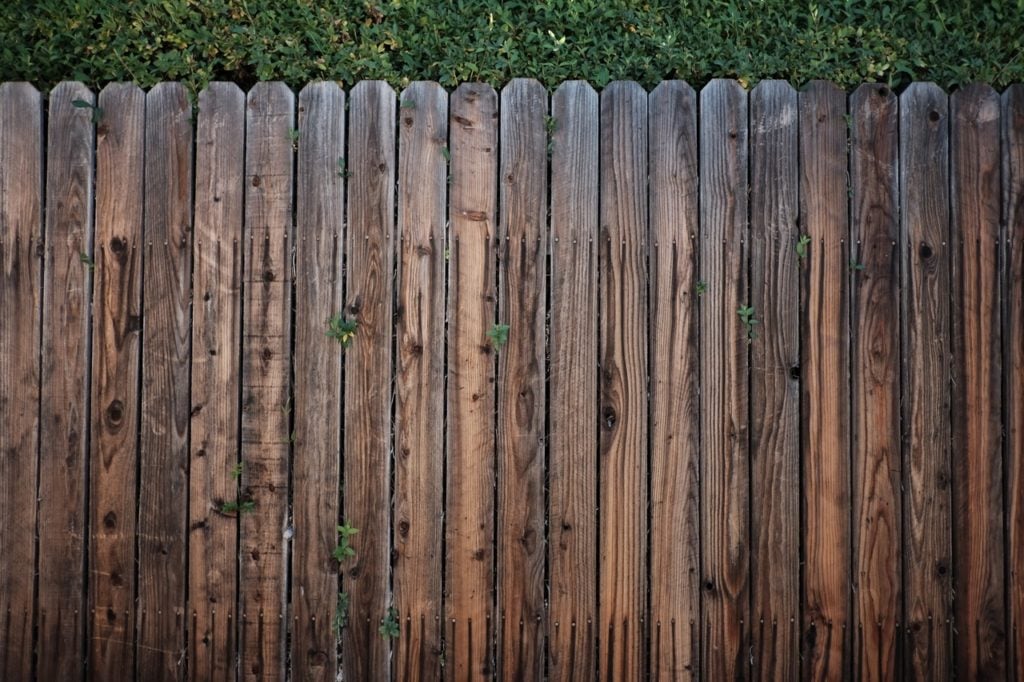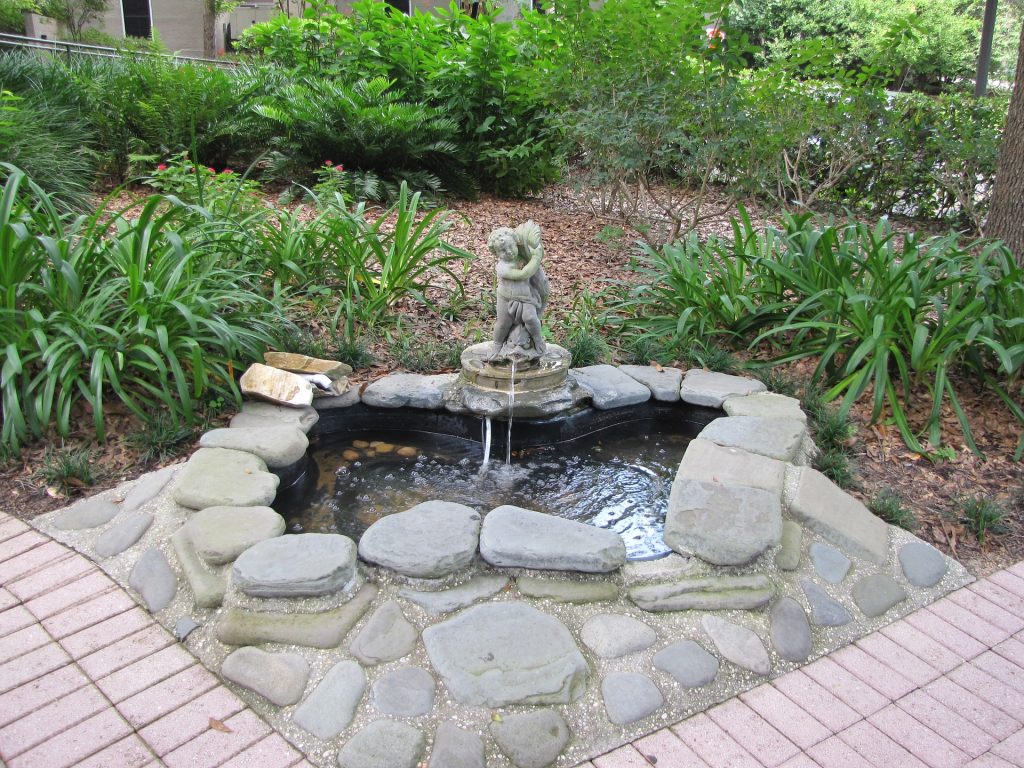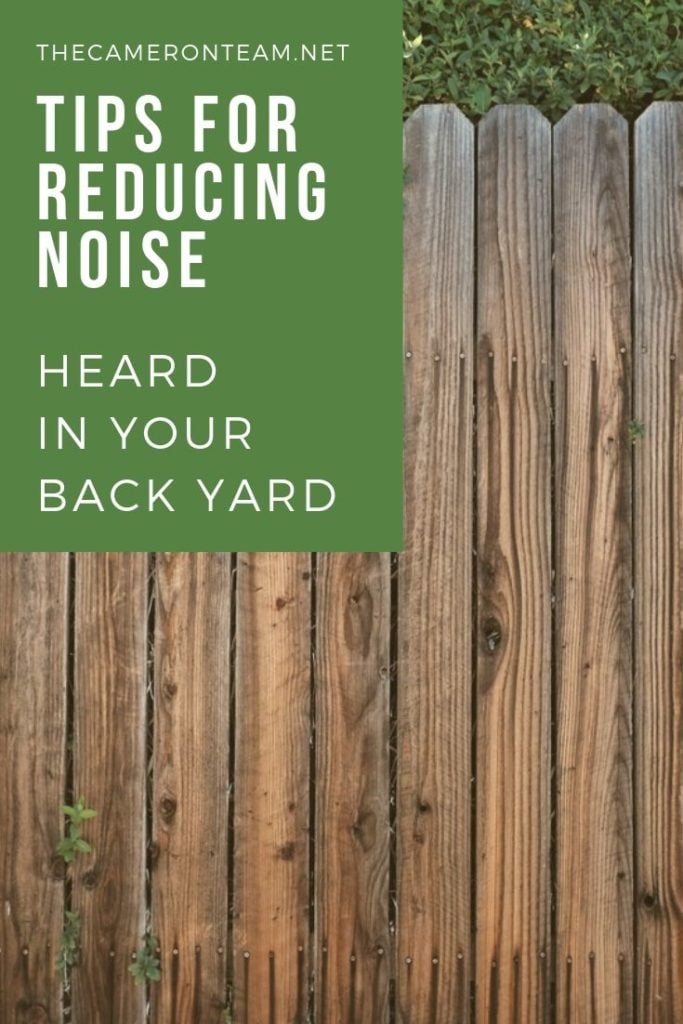Do you live near a busy road? Is there a substation nearby that leaves your head buzzing? Are your neighbors rambunctious? Then you’re likely looking for a way to stop the noise from reaching the quiet zen of your back yard. Be aware that it’s hard to block all the noise, but there are ways to limit it so it’s not as noticeable. Read on for tips for reducing the noise you hear in your back yard.
Please note: The Cameron Team has not been paid or received any other compensation to include any of the products featured on this post, but the author has included affiliate links and content. If you click on a link, they may earn a commission with no added cost to you. It’s a high-five for great content!
Barriers
The best way to reduce noise is to build a sound-reducing barrier between your yard and the source of the noise. Of course, this won’t be as effective if the source is above the barrier, so this works best for busy roads at normal elevations and lively neighbors. However, if you’re thinking, “But I already have a fence”, understand that not all barriers are made the same and if this is the route you choose to take, the goal should be to build the barrier as high as local ordinances will allow.
Wood Fences
This is the type of barrier that many homes have, but it’s not great at stopping noise. Wood fences are prone to rot and warping, which can leave gaps in the barrier. Gaps are absolutely what you don’t want to have, because they’ll let in sound. So, remember, if you can see light coming through, you can be assured there will be little reduction in sound.
Vinyl Fences
Vinyl fences are thicker and more effective at blocking sound than wood fences. The materials are more expensive upfront, but they require less upkeep. The only thing that may keep a homeowner from choosing this barrier is that it’s not the most effective option out there. It’s just better than a basic wood fence.
Masonry Walls
Brick, stone, and concrete walls are some of the best barriers for blocking noise. They’re solid and resistant. However, they’re costly and a lot of work to install, and they don’t match every style of home. If you can afford the install and the aesthetic appeal matches your property, a masonry wall can reduce sound up to 50%.
Metal Fences
While metal is easy to install and the panels look just as solid as other types of fences, it can be deceiving. Due to a lower density, soundwaves move through metal faster than other solid materials, which is why you should avoid installing a metal fence. Plus, it can be easily damaged, so you could end up with gaps.
Acoustic Fences
There are specially designed fences that can incorporate a combination of materials to block noise. They often feature a tongue and groove design to prevent gaps, and may include two walls and a filler. It really depends on the manufacturer. They cost a bit more than wood fences; however, they’re a fraction of the cost of masonry walls and can reduce noise 10+ decibels, which can feel like a 50% reduction to the human ear.
Mass Loaded Vinyl
If you already have a fence, another option is Mass Loaded Vinyl. This flexible barrier can be bought on Amazon and screwed to an existing fence (you can also use a spray adhesive but people have had better results screwing or nailing it). It’s heat resistant and easy to cut. It may not be pretty, but it can significantly reduce sound. Just make sure you leave no gaps.
Vegetation
Planting a hedge fence or row of trees is not one of the most effective ways to block noise; however, it can be visually appealing. Vegetation needs to be planted very densely to prevent any significant amount of noise from passing through. If you don’t have a major noise issue and just want to damper – say – the sound of a normal amount of traffic, vegetation isn’t a bad option.
Noise Interference
Another way to reduce the effects of annoying sound (like hum of a substation or passing traffic) is to create other sounds that will block it out. That doesn’t mean blasting your radio (because we are pretty sure your neighbors wouldn’t be happy with you), but it does mean finding the right frequency, tone, and pattern that will make the sound less obvious.
Installing a water feature is one approach. The sound of running water is much preferable than anything artificial and because it’s closer to you, your ears will focus on it more than anything coming from 30+ feet away. If the sound of a simple fountain isn’t enough, also consider installing some Bluetooth speakers to play the sound of water, birds, etc. Companies make speakers that look like rocks, so they blend in with the landscape. They are easy to install and can be shutoff when the back yard isn’t in use. This approach may also be good used in conjunction with one of the other options mentioned above.
Conclusion
Reducing the noise that reaches your back yard is not impossible or incredibly expensive, but it will take some budgeting and physical labor. Upgrading your fence can be a more cost-effective option than selling your home and moving. However, if none of these options work to improve the enjoyment of your back yard, we are happy to help you find a great REALTOR. Just let us know how we can help!
[the_grid name=”Homeowner Tips”]







